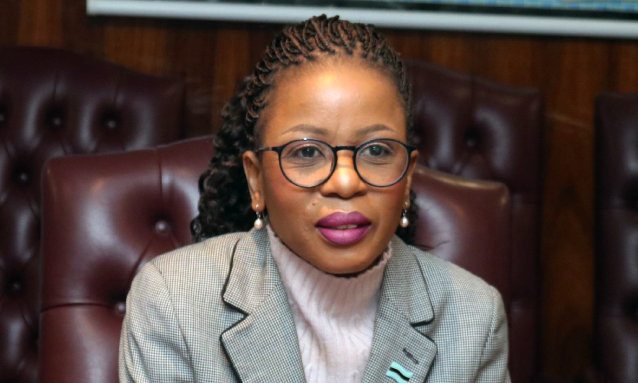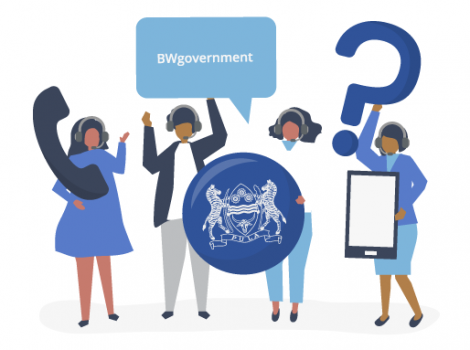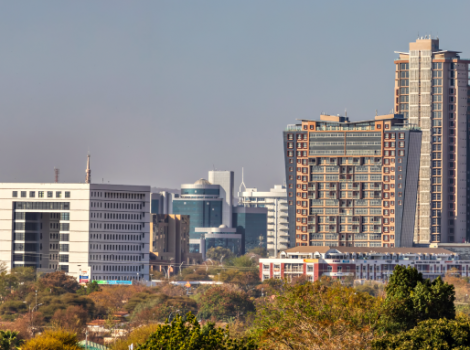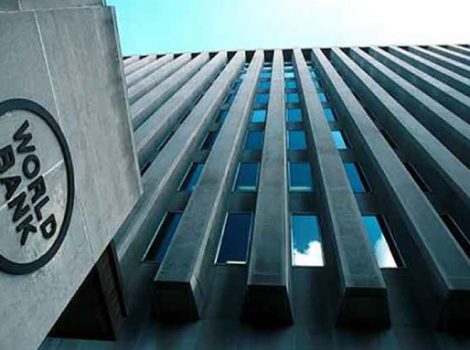
The rationalisation of parastatals and state-funded agencies has been on the table since the beginning of National Development Plan 11. This was conceptualised to merge parastatals that have overlapping mandates.
Information reaching WeekendPost suggests that the Selibe Phikwe Economic Diversification Unit (SPEDU) is set to merge with the Special Economic Zones Authority (SEZA). Established in 2008, SPEDU is an investment promotion company owned by the Government of Botswana tasked with coordinating investment promotion and economic diversification in the SPEDU region. The Special Economic Zones Authority (SEZA) Botswana is an institution under the Ministry of Investment Trade and Industry (MITI), established through the 2015 Special Economic Zones Act. SEZA’s mandate is to establish, develop and manage Special Economic Zones (SEZs).
SEZA was set up to deliver investor-friendly services and incentives aimed at enhancing the competitiveness of investors and providing a supportive SEZ environment through the delivery of a one-stop-shop service. This was aimed at enhancing investor efficiency as well as providing serviced infrastructure and fit for purpose property solutions for investors.
The adverse impact of the COVID-19 pandemic on Botswana’s economy and government revenue has amplified the need for the rationalisation of some parastatals. Many of these organisations are viewed as a waste of government money. The novel Coronavirus has suppressed Botswana’s fiscal muscle, forcing the government to embark on an unprecedented cost-saving drive.
Curtailing subvention funds to parastatals was highlighted as one of those key areas earmarked to free up money for more pressing matters.
“We will have to relook at the money channelled into our parastatals and state agencies. Are we still getting value for money?
Under this situation of depressed government revenue, we will have to reduce the amount of money we give our parastatals,” said the Minister of Finance and Economic Development, Dr Thapelo Matsheka in April.
On being quizzed about the SPEDU/SEZA merger, the Minister of Investment Trade and Industry, Peggy Serame referred WeekendPost to her Tuesday parliament address. Minister Serame told lawmakers that the Government had recognised the need to rationalise some parastatals, noting that it had observed that some have duplicate mandates and redundant deliverables.
“This, in turn, has been underscored to stretch government coffers as hundreds of millions exit the national treasury,” she said.
Serame underscored that a committee led by Minister of Finance, Dr Thapelo Matsheka has been set up to assess all existing parastatals and state-funded agencies.
“The Government has about 60 parastatals. My ministry has about 12 state-owned enterprises. They are too many. We have started a process to reduce them. Some will be merged while others will not exist at all after this rationalisation excise,” said Serame.
She further told Parliament that Minister Matsheka’s Cabinet-tasked committee will submit its findings on the rationalisation of State-Owned Enterprises and parastatals next month.
“The findings of this assessment by Dr Matsheka’s committee will be presented to Cabinet, following which an exercise will commence implementing its findings, subject to Cabinet approval.”
Minister Serame revealed that the rationalisation is not only aimed at saving Government funds but also to improve efficiency and service delivery.
“The Government is spending a lot of money on these SOEs and parastatals. We have been asked before why we have the Botswana Development Corporation(BDC), National Development Bank (NDB) and Citizen Economic Empowerment (CEDA. We will look at these organisations to see how we reconfigure them to get value for money,” she said.
Earlier this year, the Member of Parliament for Selibe Phikwe West, Dithapelo Keorapetse suggested that it was time SPEDU‘s mandate was reviewed.
“We need an expedited review of SPEDU’s mandate or to close it down altogether. It cannot be business as usual. The town’s economy needs resuscitating,” he said at the time.
According to Keorapetse, SPEDU in its current form is incapacitated and unable to drive serious economic revitalisation through cutting-edge enterprises and labour-intensive industries.
“A broadened mandate to make a full-fledged investment arm of the region is what we need. SPEDU should be able to go into joint ventures with domestic and foreign investors and set up profit-making businesses,” he said in an interview with WeekendPost in February on the sidelines of the 2020/21 Budget Speech.
He stressed SPEDU must be able to do everything necessary to set up industries in Phikwe without being impeded by any other entity.
Meantime, talks around merging BNOC, BNSC resurface
The Minister of Youth Empowerment, Sport and Culture Development, Tumiso Rakgare, is eager to lead crunch talks that will see the Botswana National Sport Commission (BNSC) and Botswana National Olympic Committee (BNOC) becoming one authoritative sports entity.
Tuelo Serufho’s appointment to the plum position of BNSC Chief Executive Officer two weeks ago has further catalysed the intention to merge the sports bodies to avoid the long-standing complaints of the duplication of roles by the two. Serufho was replacing Falcom Sedimo whose contract was not renewed.Serufho, ironically is the longest serving CEO of BNOC and also a board member of BNSC.
“One of our aims is to form a robust sports body to centralise and improve decision- making processes and maybe the time to resuscitate the BNSC/BNOC merger is now,” Rakgare briefly shared.
The impending move is aimed at improving Botswana’s efficiency, governance and performance of sports both locally and globally. Should this see the light of day, Botswana would have done itself a favour, improving its ability to send athletes to international competitions. Talks on the amalgamation of BNSC/BNOC have been in the pipeline but discussions were aborted two years ago without clear reasons. The creation of this all-encompassing sports institution is overdue, according to the Minister.
“It is our mandate to make sure this happens, it is overdue and by next year, we hope to have finalised our position paper,” Rakgare added.
The creation of the single sports body is reportedly borne out of lessons learnt from various sports governance models around the world. In South Africa, the sports ministry facilitated discussions to merge the National Olympic Committee of South Africa (NOCSA) and the South African Sports Commission. Their authoritative sports body is now called South African Sports Confederation and Olympic Committee (SASCOC).
With the South African model well in place, Botswana is urged to benchmark against it to create a sports body to function as a civic society-based organisation as required by the statutes of international sports bodies. The Minister would not be drawn into disclosing what the local sports body is likely to be called. But he is optimistic that the body will be Botswana’s vanguard organisation of sports.
He emphasised that the sports organisation should be a purposeful guardian of the governance and management of sports and be the required defining figure of the role of sports in Botswana’s communities. Talks around revamping and reorganising the sports bodies come at a time when the BNSC is restructuring. When Sedimo was still at the helm, he wanted to phase out roles he felt were redundant. The BNSC receives close to 53 million Pula in annual government grants through the Ministry of Youth, Sports development and Culture empowerment, while the BNOC also receives a similar sum.
YourBotswana view
This is a very good development – providing the government moves at lightning speed to make good on its word. The number of state-owned entities and by extension, the shocking size of the government’s workforce have always left us baffled us. In fact, just recently, we added our strong views to the article Government freezes over 4,400 public service posts. This was mainly to refute claims by the Directorate of Public Service Management Director, Goitseone Moselekatane that cutting down on staff would hinder service delivery and efficiency.
I’ve always maintained Botswana has waaaaay too many parastatals (many of which are very, very similar) and too many employees, a gross misuse of taxpayers’ money. To me, it only follows that unless the government relinquishes ownership of the majority of the entities it guards ever so jealously, it would render itself perpetually cash-strapped.
Too many times talks around commercialising government entities stop and start for decades until the government starts to look like the boy who cried wolf – think Air Botswana, the Botswana Meat Commission and Botswana Railways.
Thankfully or regrettably, depending on the way you look at it, COVID-19 came along and exposed countless deficiencies the world over, Botswana included. The pandemic has left global economies on their knees and governments are now having to wake up and smell the coffee, to realise that the gravy train has well and truly dried up. It has shone the light on the urgent need for efficiency and accountability. But above all, it is forcing the need for austerity measures and the Botswana government could do well to make good use of this time to restructure, streamline, chuck the deadwood, declare war on corruption, save the tax payers’ money and redirect it towards robust efforts to take the country forward.
Source: http://www.weekendpost.co.bw/28594/business/govt-moves-to-merge-spedu-seza/ and http://www.weekendpost.co.bw/28571/sport/talks-to-merge-bnoc-bnsc-resurface/



